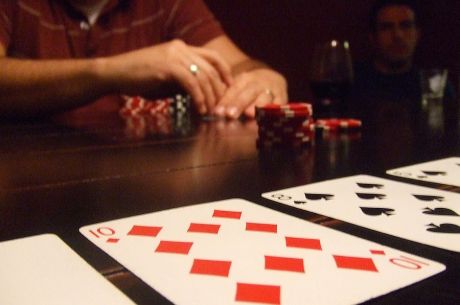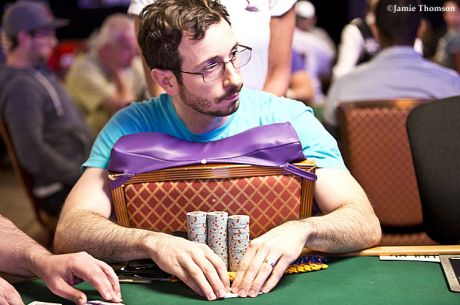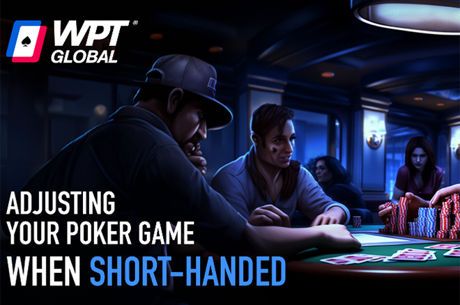Overbet Shoves: Tread With Caution

Covering live poker tournaments for a living affords me the opportunity to see countless thousands of hands played out, many of which offer interesting and potentially valuable insights into how players — both amateurs and professionals — play the game. In this ongoing series, I’ll highlight hands I’ve seen at the tournaments I’ve covered and see if we can glean anything useful from them.
The Scene
The live reporting schedule has been a little light for me the past couple of months. That opened up some time to put the pen and notepad on the shelf and actually take to the felt myself and play a tournament or two. So, I made the eight-hour trek to Indiana to play the World Series of Poker Circuit Horseshoe Hammond Main Event.
The $1,675 tournament drew 1,376 runners and I managed to run deep enough to make the money. At the point this hand took place, there were around 100 players left and we had reached Level 20 (4,000/8,000/1,000). The winner of the tournament would take home $356,043. The player in the small blind had recently gotten moved to the table. Already, he had three-bet a light opener and showed 7x2x.
The Action
I was dealt A♥6♥ under the gun and opened to 18,000. Krzysztof Stybaniewicz called from the cutoff with a stack that covered everyone, and both blinds came along as well meaning it was four-way action as the flop came 9♠5♥3♥.
The player in the small blind promptly shoved all in for 264,000 into the pot of about 80,000. The big blind folded, and I tanked a while before folding as well. Stybaniewicz then called after confirming the amount of the shove.
Stybaniewicz: J♥J♦
Small blind: 8♥8♦
The turn was the 6♠, making Stybaniewicz sweat a little bit as it gave the small blind a straight draw, but the K♦ river was safe for him and he collected the large pot.
Concept and Analysis
From under the gun, I open with a suited ace and ended up seeing a multi-way flop against Stybaniewicz, who had been playing solid poker all day, and the two blinds. When the flop comes a relatively unremarkable-seeming 9♠5♥3♥, I expect both blinds to check to me pretty often, but the small blind makes a surprising move, shoving for massively over the size of the pot.
After the big blind folds, it’s an awkward spot for me. The small blind, as crazy as he’s been, probably has one pair most of the time and is ahead of my ace-high. At the same time, if he is ever pushing with flush draws, it’s a golden opportunity for me to scoop up a huge pot and be in prime position to win the tournament.
Ultimately, I have to fold since (1) I’m likely behind and (2) there’s still a player behind me who has me covered and could have flopped something like a set of fives that would have me in rough shape. Stybaniewicz has no such concerns and he quickly calls with his overpair, knowing he is almost never going to be behind.
There are lots of ways to make a mistake in tournament poker, but an ill-timed overbet shove is probably one of the worst. Looking at this hand from the small blind’s perspective, what is the shove supposed to accomplish? Presumably, he figured he might have the best hand. Indeed, two eights will be best a decent amount on a flop like that even four-handed.
But what if the eights are no good? He might chase away me or the big blind if we have a nine, but I’m certainly not folding an overpair, and Stybaniewicz is going to call with everything that beats two eights and probably nothing that doesn’t. This shove pulled the double whammy of chasing away the hand he had solid equity against (mine) and getting in only the hand he was crushed by (Stybaniewicz’s). Remember, we want worse hands to call us if they are not getting correct odds.
There’s definitely a time and place for overbet shoves. But doing so when holding a hand that almost always has very little chance to be good if called is a great way to throw away tons of tournament equity. A large bet close to the size of the pot would have given this player all of the information he needed to make a sound decision with eights. Instead, he was out of the tournament.
Want to stay atop all the latest in the poker world? If so, make sure to get PokerNews updates on your social media outlets. Follow us on Twitter and find us on both Facebook and Google+!









